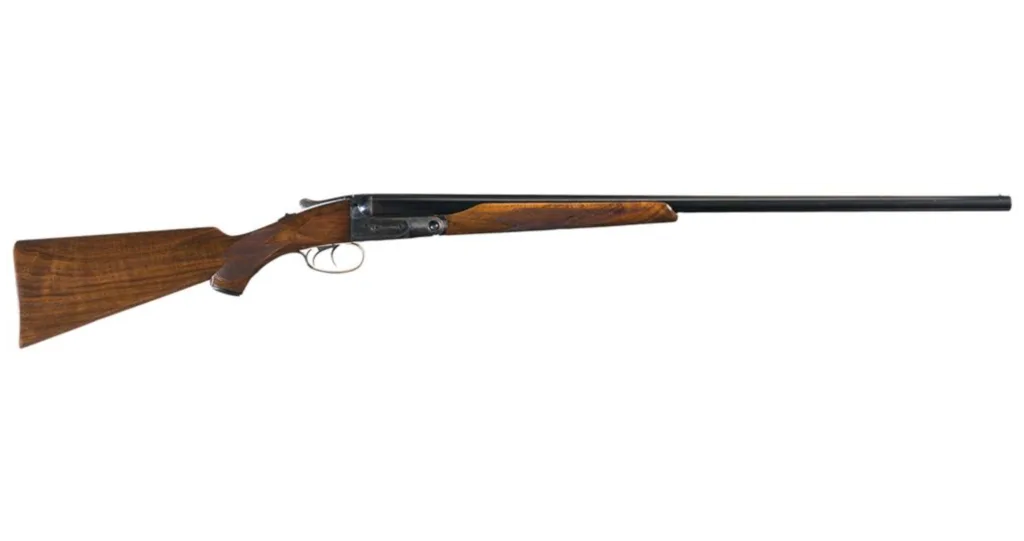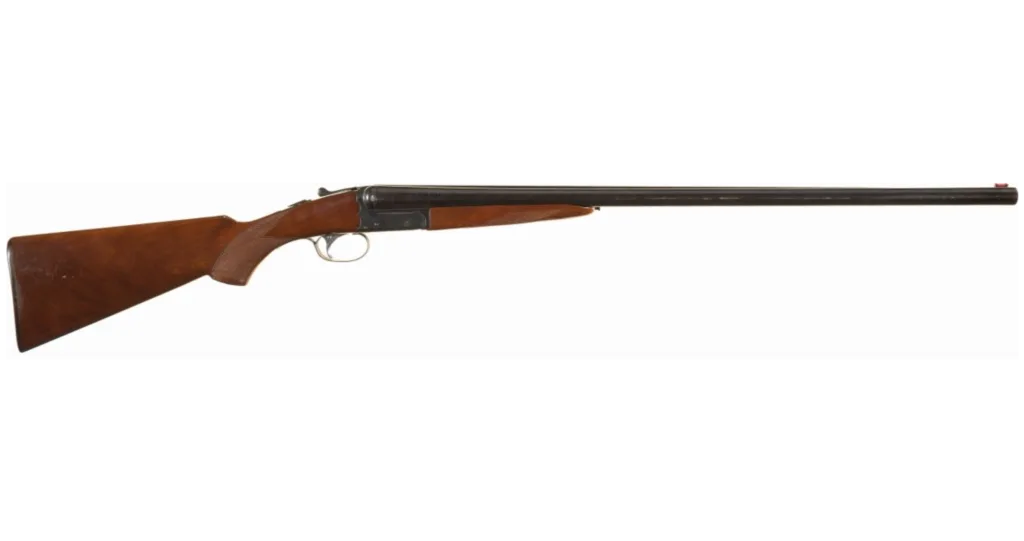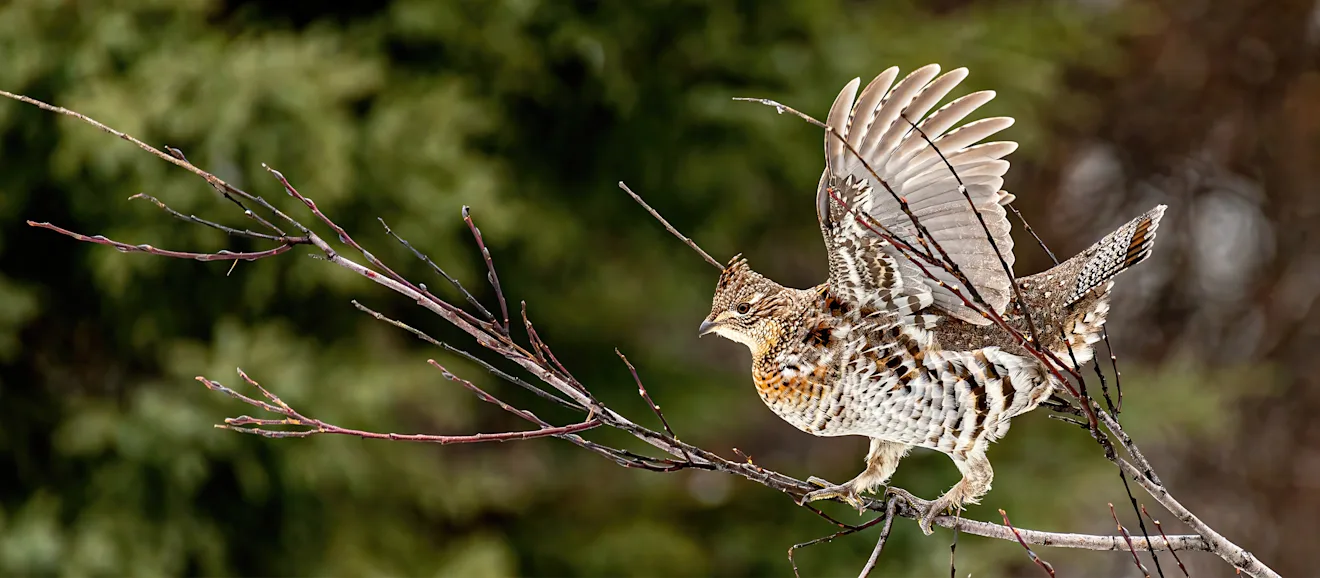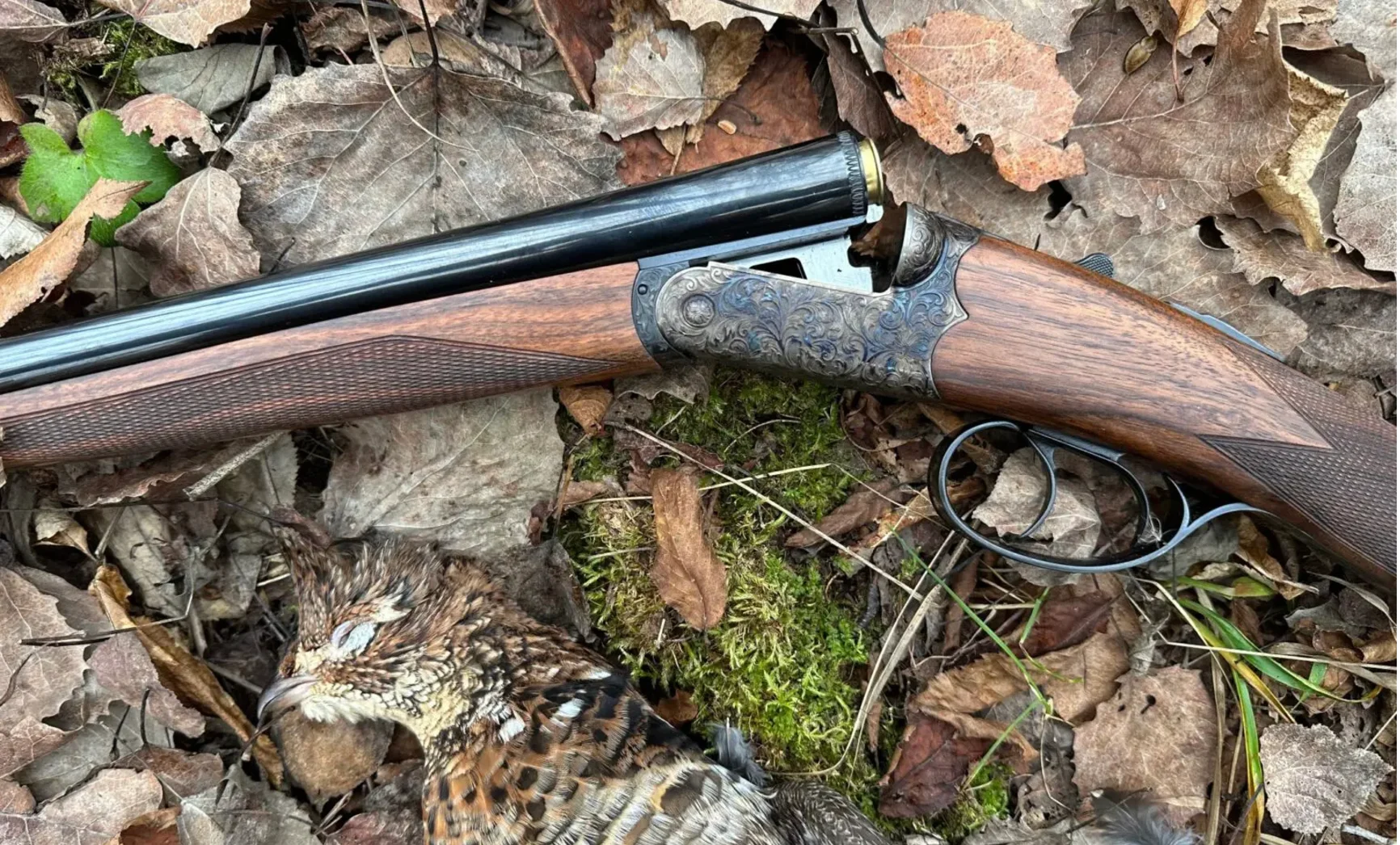We may earn revenue from the products available on this page and participate in affiliate programs. Learn more ›
Grouse and the cover they live in shape grouse guns. Heavy brush demands a light, compact gun that can be carried in one hand while the other fends off branches. Limited visibility dictates open chokes. (Why should a gun shoot 40 yards when you can’t even see that far?) And while grouse themselves can be hard to hit, they are easy to kill, so small-bores predominate.
Grouse guns, though, are more than tools of the hunt. They are totems as well. More than almost any uplanders, grouse hunters immerse themselves in the trappings and traditions of the hunt, which explains why many older designs make this list of 15 great grouse guns—although there are plenty of new classics here as well.
Best New and Currently Made Grouse Guns
1. Browning A5 Sweet 16 & 20 Gauge
The original Belgian-made Auto 5 Sweet 16 was the darling of semiauto fans, yet the new A5 model may be a better grouse gun. All it shares with its namesake is the humpback receiver and its Browning pedigree. It’s much lighter than the original, weighing under 6 pounds thanks to an alloy receiver. The A5′s reliable inertia action eliminates the pogo-stick recoil of the long-action Auto 5 as well. Like the Sweet 16 before it, the A5 version combines sub-gauge handling with near 12-gauge ballistics, making it a potent bird-getter and a modern grouse hunting classic.

Also, new for 2024, Browning introduced a 3-inch, 20-gauge A5. It’s a smidge lighter than the 16, but not so light you can’t shoot it. You could absolutely carry this through the grouse woods for miles and make your shots when you finally find birds. You can check out a full review of the new 20-gauge A5 here.
2. Connecticut Shotgun Manufacturing Company RBL
Connecticut Shotgun Manufacturing Company (CSMC) makes an excellent side-by-side shotgun right here in America, and it’s a gun that fits right into the October woods. The CSMC RBL comes in 12-, 16-, 20-, and 28-gauges. CSMC employs highly skilled artisans to build and finish its guns, and it does case-coloring the old-fashioned way, heating parts in boxes full of bone charcoal or leather to produce gorgeous colors on the steel.
Guns can be ordered with a number of different options, in most cases for an up-charge. RBLs are not cheap, starting at around $5K, but no matter how you configure yours, it will be a gun you’ll be proud to carry into the woods, and it will be a gun that will help you bring grouse and woodcock back out with you.
3. Benelli Montefeltro Ultra Light
Benelli recently pulled off the difficult trick of fixing a gun that wasn’t broken by turning the cult-favorite Benelli Ultra Light into the Montefeltro Ultra Light. It retains the weight-saving short magazine tube and carbon fiber rib of the original. Now it has the lines, the Easy Locking bolt and the softer spring and shell latch for smoother loading of the Montefeltro. The 12-gauge has a 26-inch barrel and weighs just under 6 ½ pounds, while the 20-gauge has a 24-inch barrel and weighs a full pound less than the 12. Both guns carry effortlessly in the woods and pop quickly to your shoulder.
4. Upland Gun Company Venus
Upland Gun Company in northern Minnesota works with R.F.M. in Italy to offer custom-stocked O/Us and side by sides with a wide range of options. All the models make good grouse guns. The Venus, a petite, rounded-action side by side, might be the pick of the UGC litter if you’re looking for a gun for the brush. An absolutely stock Venus starts at $3500 which includes custom stock dimensions you specify. Upland Gun Company can help you arrange a fitting for an added fee.
5. Beretta 686 Silver Pigeon
You don’t have to search hard to find one of the greatest grouse guns of modern times. Every BassPro and Cabela’s stocks bunches of Beretta 686 Silver Pigeon Is. Last time I hunted birds in Wisconsin, I was struck by the number of 20-gauge Beretta 680s in the hands of local grouse hunters—almost as if they had been issued along with a hunting license. There’s good reason for that. Berettas are low-profile, slim, strong, and light, all qualities you look for in a grouse gun. The Silver Pigeon I is the bottom of the 686 line, but inside, it’s exactly the same gun as the pricier, more decorated models. It comes in 12, 20, and 28 gauge.
6. Dickinson Plantation Grade
Turkey is the new Spain. For years grouse hunters in search of an affordable double shot Ugartacheas (“Uggies”) made in Spain. Ugartachea closed in 2019, and while there are still plenty of used ones around, if you want a new double gun at a good price, look at a Turkish Dickinson. The guns have been around the U.S. for a while, imported by S&W and others, and they are a good buy in a traditional two-trigger double. The Plantation Grade has full side plates, is beautifully case-colored, and is stocked in nice Turkish walnut. Despite its traditional looks, it has choke tubes and is rated for steel shot. It comes in 20, 28, and .410.
7. Ithaca Model 37
The Model 37 was made in grouse country in western New York. Rather than draw up a pump gun design from scratch, Ithaca waited for the patent on the John Browning/John Pedersen-designed Remington Model 17 to expire. The result was this classic American pump-action grouse gun. The 37 was lightweight, smooth, and featured bottom ejection that made it a favorite of left-handers.
There are tons of used 37s on the market, although prices have risen in recent years and you can no longer pick one up for a couple hundred bucks. Ithaca fell on rocky financial times in the 80s, but was eventually reinvigorated and moved to Sandusky, Ohio, where the guns are made today. In addition to the 12- and 20-gauge, the new Ithaca offers a scaled-down 28-gauge that is tailor-made for grouse hunting and can be ordered with a 24-inch barrel, albeit at a near-double-gun price.
Related: 10 Best Shoguns for Pheasant Hunting
8. Browning 725 Feather
By replacing the steel frame of the 725 Citori with a lightweight alloy receiver, Browning engineers shaved considerable weight off the regular 725. The result is a 6 ½-pound 12 or a 20 that scales just under 6. Either would be a delight in the thick coverts, and both retain enough weight up front to be easy to hit with while simultaneously being easy to carry. The guns still have all the strength and good points of the Citori, without the bulk.
9. CZ Upland Ultralight All-Terrain
If you want a break-action gun but shudder at the thought of carrying it through the rough stuff, CZ’s Upland Ultralight All-Terrain O/U might be for you. Available in 12- and 20-gauges with alloy frames and 28-inch barrels without mid-ribs, the guns are lightweight but heavy-duty. These guns have a tough O.D. Cerakote finish on all metal surfaces and a matte-finished plain walnut stock that won’t show scratches, and they sell for a low-enough price that you won’t care so much if you do scratch them up.
10. Mossberg SA-28
The 28 is currently trendy, and the grouse woods are a great place to find out what all the fuss about the little gun is about. Mossberg’s SA-28 semiauto has a 26-inch barrel to make it a bit more compact in the woods, and a gas system that makes the already soft-kicking 28-gauge cartridge even more pleasant to shoot. At 6 ½-pounds, it’s a bit heavy for a 28, but it’s not too much to carry, and that weight comes in handy when it’s time to actually shoot at something. The gun has a blued barrel and high-gloss walnut stock, so it’s properly dressed for the grouse woods, too.
Best 5 Classic Used Grouse Guns
11. Parker

Known as “Old Reliable,” the Parker is the most famous of American doubles. They have looks and cachet and are instantly recognizable by the slotted screw over the hinge pin in the receiver. Parkers came in a variety of grades, gauges, and, most importantly, frame sizes—so you could order one properly scaled and weighted for the grouse woods. They were made from 1866 to 1942, and the company was owned by Remington at the end.
If there’s a quintessential grouse gun, it might be the VH Parker 20-gauge that belonged to Burton Spiller, “The Poet Laureate of Grouse,” which he passed on to Field & Stream writer (and son of “Tap’s Tips” writer) Bill Tapply. It combines all the features a grouse gun requires and adds a healthy dose of literary pedigree.
12. Ruger Red Label 28-Gauge

The Ruger Red Label is a love-it-or-hate-it gun. It has a strong cult following and an equally fervent cult of haters. As a serial Red Label owner (I’m on my fourth), I fall in both camps. Red Label fans like the gun’s low profile, mechanical triggers, sleek lines, durable action, and the fact that it was made in New Hampshire. Haters dislike the way it flops open (it’s supposed to), its excessive weight, and the shoddy wood-to-metal fit.
The 28-gauge Red Label, built on a true 28-gauge frame, was by far the lightest, liveliest, most shootable Red Label of all, and a great gun for the grouse woods. I had one and foolishly sold it. It was a deadly wand while I owned it.
13. Ithaca/SKB 100

The SKB 100 was a gun ahead of its time. An excellent single-trigger double gun, it made a great carrying gun in the woods. In 20-gauge with a 26-inch barrel, it weighs about 5¾ pounds with a very muzzle-light feel that makes it easy to carry one-handed by its pistol grip. You have to feed it carefully because it is a brutal kicker for such a cute little gun. But when given a diet of light loads, it is manageable to shoot and deadly on grouse. The 100 was the bottom-of-the-line field grade. You could step up to a 200 or 280 to get ejectors in place of the 100′s extractors, more engraving, and a straight grip.
14. AyA 4/53

Spanish gunmakers have never been innovators, just excellent copiers and craftsmen. The AyA 4/53 was inspired by the Westley Richards double, whose boxlock Anson and Deeley action dates to 1875.It is a simple, durable gun built on a long-proven design. It’s everything a grouse gun should be, but nothing more: It has two triggers, a straight grip, splinter forend, and minimal engraving on a case-colored receiver. The gun no longer appears on the AyA website, but you'll find that both new and used model are out there if you poke around.
15. Winchester 101

“Made in Japan” meant cheap and shoddy until guns like the 101 came along in the mid-60s. The 101 was a lighter gun than its main competition, the Browning Citori, making it better suited to the grouse woods. The collaboration between Winchester and Japanese maker Kodensha lasted until the factory was torn down in the 1980s.
That collaboration had its bumps. The Kodensha factory also produced Nikko shotguns that were essentially the same gun as the 101. Because there were few Winchester employees watching over the plant, the Japanese allegedly high-graded the best 101 wood to use on Nikkos, so Nikkos are also a gun to watch out for.
















